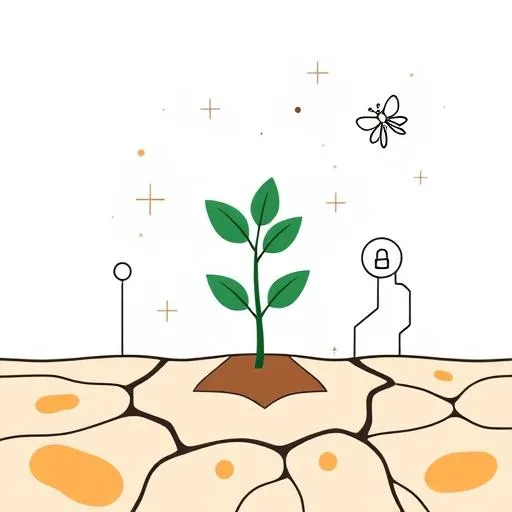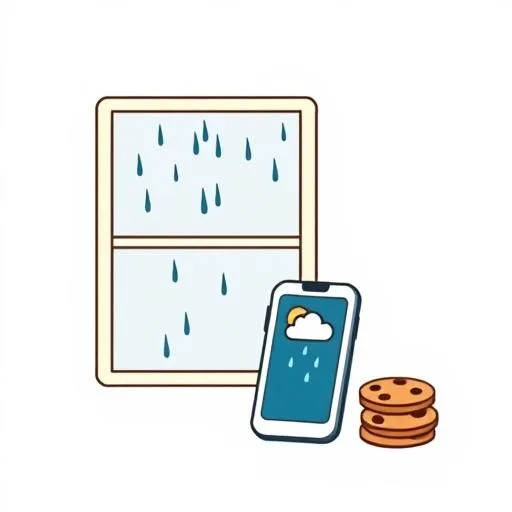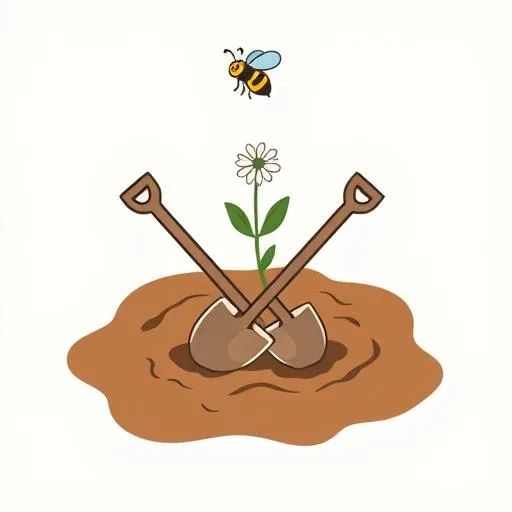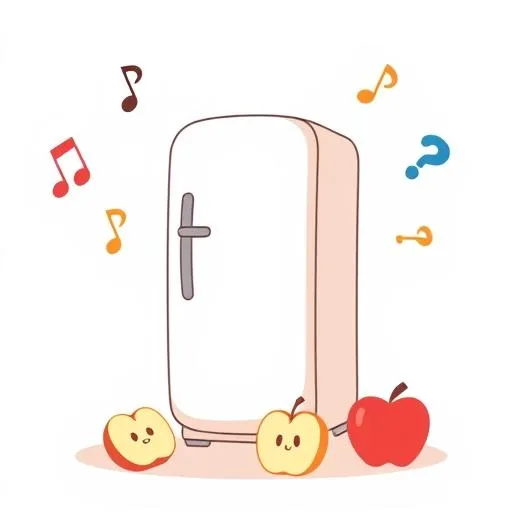
Ever wonder what ‘the future of work’ really means for our kids? Last week’s global whispers about AI and data—how they’re reshaping innovation and leadership—had me pausing mid-sandwich prep. Amidst those big ideas, I found myself staring at the bread knife, thinking about simpler things. Not because of the tech jargon, but the quiet truth beneath: our children aren’t just growing up with AI. They’re growing through it. Like watching a sapling push through concrete, their curiosity must bend, not break, amid digital currents. What if the brightest minds tackling big questions about data actually point us toward simpler ones: How do we keep wonder alive when screens blink brighter than fireflies?
Accessibility Starts with ‘Why?’

That virtual conference buzzing about making AI accessible hit home when my kiddo asked why the weather app ‘knows’ rain. You know how kids are—they see magic everywhere! Truth is, accessibility isn’t about fancy tools—it’s turning ‘magic’ into teachable moments. Like tracing raindrops down the window: ‘See how each drop follows a path? Data does that too!’ Suddenly, big concepts feel as tangible as sidewalk chalk drawings. What if we treated AI like a storybook character? Not a distant wizard, but a friend who helps us count stars or sort LEGO bricks by color. When tech stays approachable, kids don’t fear it—they play with it. Remember: a child’s ‘aha!’ moment isn’t sparked by lectures, but by you whispering, ‘Let’s figure this out together,’ while baking cookies or walking through autumn leaves.
That inclusive spirit the conference celebrated? It’s why I avoid assuming tech fluency equals intelligence. Some kids light up with robotics, others with rock collections. Both are data scientists in their own way. Last Tuesday, watching neighborhood kids build stick forts, I marveled: their teamwork was strategy in action—assigning roles, adapting to ‘rainstorms.’ No screens needed. The real win? Helping kids see themselves as innovators, not just consumers. What small wonder could your family explore this week? Maybe map cloud shapes or time how long acorns roll downhill. Pure, playful data.
Inclusivity Blooms in Backyard Laboratories

Global leaders talked about AI’s role in society—but inclusivity for our little ones begins in mud puddles and sandbox spills. Picture this: a group of kids sharing shovels, negotiating who gets the ‘gold’ (okay, shiny rocks). That’s leadership in action! Conferences like this remind us inclusivity isn’t a buzzword; it’s ensuring every child feels their curiosity matters. Not all kids have tablets, but all have questions. When one child wonders why shadows stretch at sunset, others lean in. That shared ‘huh?’ is the bedrock of belonging.
Last week, I saw this magic unfold at the park. A shy toddler pointed silently at a bee on a flower. Without prompting, others crouched down, breathing together. No app could teach that empathy. It’s why I’m ditching pressure to ‘prepare for AI jobs.’ Instead, we focus on what tech can’t replicate: how they collaborate when building pillow forts, or comfort a friend who scraped a knee. Those are the skills no algorithm inherits. Ask yourself: where does your child naturally lead or follow in play? Notice how they problem-solve without Wi-Fi? That’s the future we’re nurturing—one sandbox at a time.
Actionable Joy: Turning Ideas into Family Riddles

The conference’s talk of ‘actionable insights’ got me grinning. Because actionable parenting? It’s rarely grand gestures. Often, it’s turning daily chaos into curiosity fuel. Like when the fridge hums too loudly: ‘Hmm, wonder why this sound feels different?’ Suddenly, a chore becomes detective work. Tech isn’t the villain or hero here—it’s just another texture in life’s quilt.
This week, try this: during snack time, ask, ‘If our apple slices had superpowers, what would they do?’ Watch how creativity ignites! No need for apps—just open-ended wonder. Or when streaming a nature documentary, pause and whisper, ‘What if squirrels built data centers?’ Laughter guaranteed. Those lightweight moments? They build resilience. When kids learn to question and chuckle, tech shifts from overwhelming to an interesting tool—not the main event. Remember: the goal isn’t raising AI experts. It’s raising humans who use tools wisely because they first learned to see magic in dandelion fluff.
The Future Grows in Today’s Playdough

‘The Future of Work’ track stirred something tender in me. Not anxiety—but hope. Because the skills conference experts praised (adaptability! creativity!) are already blooming in playgrounds worldwide. Think about it: when kids argue over swing turns, they’re negotiating strategy. When they mix paint colors ‘wrong,’ they’re innovating. That messy, unstructured play is their data lab.
So when headlines scream ‘AI will take jobs,’ I focus on what sticks: the kid who mends a broken toy with tape and grit. Or the one who writes a silly song about broccoli. Those sparks of ingenuity? They’re fueled by freedom to explore—not extra screen time. Let’s protect their right to boredom, to doodle on napkins, to stare at clouds. In that stillness, they build the very resilience tech can’t replicate. Next time you feel tech-pressure, breathe deep. The bravest thing we can do is hand them a magnifying glass instead of a tablet—and say, ‘Tell me what you see.’ The future’s in their eyes already.
Source: DataGlobal Hub’s GDAI 2025 Showcases the World’s Brightest Minds in Data and AI, Globe Newswire, 2025/09/07 22:30:00
